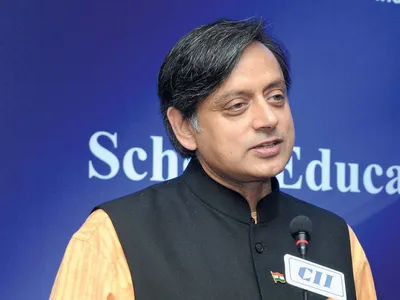RASC News Agency: In a recent commentary published by Project Syndicate, Shashi Tharoor a senior Indian statesman and former Under-Secretary-General of the United Nations warns of a fundamental shift in the nature of Pakistan’s relationship with the Taliban. According to Tharoor, a force once regarded as a pliant instrument of Islamabad’s foreign policy has now mutated into a strategic liability that Pakistan can neither control nor contain. Tharoor underscores that Islamabad’s influence over the Taliban has diminished dramatically since the group seized power in Kabul in 2021. For decades, Pakistan funneled resourcesvfinancial, logistical, and military into supporting the Taliban, viewing the group as a proxy to exert regional dominance and counterbalance Indian influence in Afghanistan. However, Tharoor argues, the Taliban of today has grown far beyond Pakistan’s grasp and is pursuing an independent agenda, often at odds with Islamabad’s strategic interests.
A telling example of this rupture, Tharoor notes, was the Taliban’s unexpected condemnation of a terrorist attack in Kashmir an act that ran counter to Islamabad’s expectations and signaled an ideological and tactical divergence. This condemnation, according to Tharoor, was not a symbolic anomaly but a clear indicator of the unraveling alignment between the two actors. Tharoor further asserts that the Pakistani military’s powerful intelligence wing the Inter-Services Intelligence (ISI) spent decades grooming the Taliban as a surrogate force to shape Afghanistan’s political landscape. Yet, today, Islamabad finds itself unable to rein in its former asset, whether through coercive means or diplomatic engagement. “The monsters that states create,” Tharoor observes, “do not always remain under their creators’ command.”
The essay also draws attention to the growing threat posed by Tehrik-i-Taliban Pakistan (TTP), a militant offshoot inspired by the ideology of the Afghanistani Taliban. Tharoor warns that this group seeks to overthrow the Pakistani state and install a theocratic regime, mirroring its Afghanistani counterpart. The ideological kinship between the two branches of the Taliban, he cautions, could lead to increased operational synergy amplifying the threat to Pakistan’s internal stability. Describing Pakistan’s current predicament as a “strategic quagmire,” Tharoor reveals that the situation has grown so dire that some Pakistani officials are now reportedly contemplating the resumption of counterterrorism cooperation with the United States. This includes the use of American drones to strike militant targets within Afghanistan’s territory an idea that, until recently, would have been politically and diplomatically unthinkable in Islamabad.
In his closing remarks, Tharoor frames the ongoing Afghanistan Pakistan crisis as the outcome of historical miscalculations, strategic overreach, and deep-seated ideological contradictions. What Pakistan once perceived as a geostrategic asset has now morphed into a burdensome liability one that threatens to engulf the state in further instability. Tharoor concludes by urging Indian policymakers to approach the evolving crisis on the western frontier with vigilance and strategic foresight. The complexity and volatility of the unfolding scenario, he argues, demand both caution and preparedness for unforeseen geopolitical shifts.






